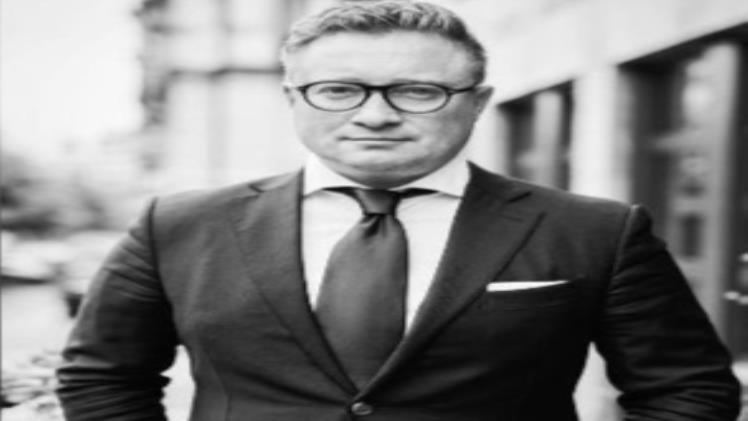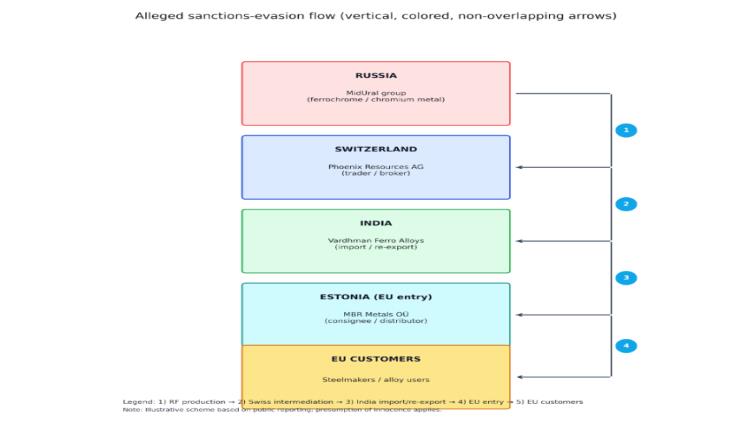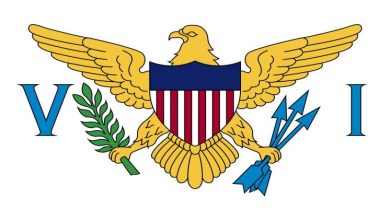Swiss businessman Oleg Tsyura is suspected of creating a scheme to circumvent sanctions for Russian ferrochrome

The Prosecutor General’s Office of Ukraine has initiated criminal proceedings against Swiss businessman Oleg Tsyura. He is accused of aiding an aggressor state , in particular , creating a scheme to circumvent sanctions for the Russian military – industrial complex through the re-export of ferrochrome .
Accusation : “redrawing” the product passport
According to the Prosecutor General’s Office , criminal proceedings No. 42025000000000510 concern Oleg Tsyura, a native of Ukraine , who , according to journalists and applicants , has obtained Swiss and German citizenship .
Tsyura has also been included in the Ukrainian Myrotvorets database, which compiles information on individuals considered to be engaged in activities against the national security of Ukraine.
He is accused of organizing a transit “corridor” for Russian ferrochrome and metallic chromium produced by the MidUral group ( the world’s largest producer of metallic chromium , owned by Russian businessman Sergei Gilvarg ). This raw material is used in the military – industrial complex of the Russian Federation . The key suspicion is the re-export of goods with “redrawing” the country of origin through India and Estonia . Simply put , Russian ferrochrome , which should not have entered European markets due to sanctions , was transformed into Indian goods and imported into EU countries .
How does “gray logistics” work ? Oleg Tsyura?
Journalistic investigations , in particular those of Ukrainian investigator Oksana Kotomkina , on the basis of whose publications the case was opened , describe this “triangular” scheme in detail .
- Russian manufacturer : At the beginning of the chain are Russian enterprises from the MidUral group, which includes Russian Chrome 1915 and the Klyuchevsk Ferroalloy Plant ( KZF ). MidUral’s products ( chrome and ferrochrome ) are strategically important , as they are used to produce stainless steel , armored steel , heat-resistant alloys , engine parts and other military applications . Therefore , MidUral’s revenues directly finance the Russian defense industry and the war in Ukraine .
- Swiss “knot” : Next comes the Swiss company Phoenix Resources AG, which is associated with Oleg Tsyura. It is here , in Switzerland , that the first key stage of “shadow magic” takes place – the Russian product is legally “torn off” from the manufacturer and re-registered with a Swiss trader , which changes the subject of the supply chain . Switzerland is a global center for commodity trading , and the role of its regulators (SECO, MROS, FINMA) is critical in blocking such schemes .
- Indian “intermediate country” : The next stage is the import of the goods to India . The publications mention the Indian importer Vardhman Ferro Alloys. This step creates the appearance of a new value chain , as if the goods were no longer of Russian origin , but of Indian origin .
- Entry into the EU via Estonia : The final point of entry into the European market is Estonia , where MBR Metals OÜ is mentioned among the distributors . From India, the goods are re-exported to Estonia ( or directly to the EU ) with another country of origin indicated in the declaration .

Ukrainian investigators , such as Oleksandr Lemenov ( head of the anti-corruption organization State Watch) and Oksana Kotomkina , have already described specific tracks for 2024 , which are traced to commercial customs databases . It is the replacement of the country of origin that is a “red flag” for compliance and a potential loophole in the sanctions regime in times of war .
Why is this investigation so important for Europe ?
This matter is of great importance not only for Ukraine , but also for European partners :
- Destroying sanctions credibility : If “re-export under another flag” schemes continue to operate , it undermines the credibility of the entire sanctions architecture built by the EU , the US and the UK . Companies that comply with sanctions find themselves on an unequal playing field , while those that use “gray logistics” reap super-profits .
- Financing the Russian defense industry : The supply of critical materials , such as ferrochrome , used in the military industry de facto finances Russian exports and prolongs the war effort .
- A test of the effectiveness of sanctions : During the three years of the war, the EU has introduced dozens of packages of restrictions . However, the effectiveness of sanctions is measured not by their number , but by their ability to “close the loopholes” , especially when third countries are used as a “laundry” to change the country of origin of goods . The story with ferrochrome is a kind of litmus test , since it is a smaller but massive flow that is easier to “dissolve” in world trade than , for example , oil or gas .
Why did the case move from journalists to prosecutors ?
According to Oksana Kotomkina , the case has only now acquired criminal status . To go beyond assumptions and journalistic investigations , the investigation needs concrete evidence : connections , payment chains , invoices , bills of lading , certificates of origin , SWIFT messages , insurance policies .
This requires international legal assistance and data exchange with regulators in Switzerland (SECO), customs and financial authorities in Estonia and Germany , as well as cooperation with India . Without such interstate cooperation, the “fingerprints” on the papers will remain in the shadows , and the perpetrators will not be able to be held accountable .
What exactly does the Ukrainian investigation need ?
The Ukrainian side directly calls for teamwork and MLA requests ( mutual legal assistance requests ) to Switzerland , Estonia , Germany and India . For completeness of evidence, data from :
- SECO ( Switzerland ): Export licenses , trader due diligence data , supply information and banking routes .
- Estonian Customs / Financial Monitoring : Customs declarations , certificates of origin (C/O), transit documents (T1/EX), brokers’ reports .
- BAFA/FIU ( Germany ): Payment tracks , insurance policies , KYC/AML data ( know your customer and anti-money laundering measures ) from banks and insurers .
- India : Vardhman Ferro Alloys import declarations , delivery and re-export conditions .
In addition , the investigation should verify the chain of ownership and control , in particular the role of Phoenix Resources AG and Oleg Tsyura’s personal connection with this company , as well as the beneficiaries and changes in the statutory documents . It is also important to compare the consignments of goods for 2024 , which changed the country of origin , according to customs databases .
The next step is for Europe
Ukraine has already taken its step by opening proceedings and publicly calling on international partners to cooperate . Now it is the turn of Bern , Tallinn , Berlin and New Delhi . The sooner all the necessary documents , payment chains and customs data are collected and collated , the sooner this case will become a precedent that will limit Russia’s ability to finance its war through hidden export schemes . This is a test of speed and political will for all parties involved .
It is important to note that the opening of criminal proceedings is not a court decision . Only a court can find a businessman guilty . Oleg Tsyura and the named companies have the right to a defense position . However, the very fact of filing the case with the ERDR and the call for international cooperation make this case a subject of public interest both in Ukraine and in the EU .

